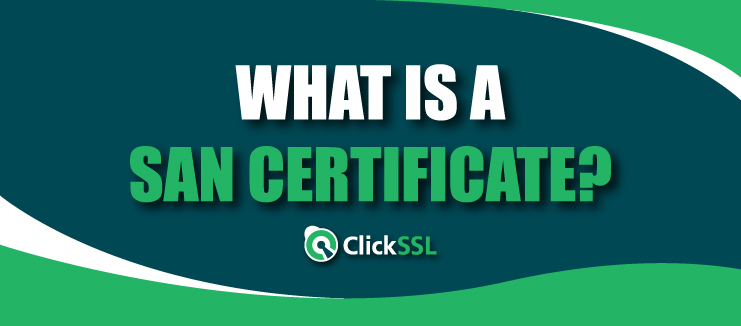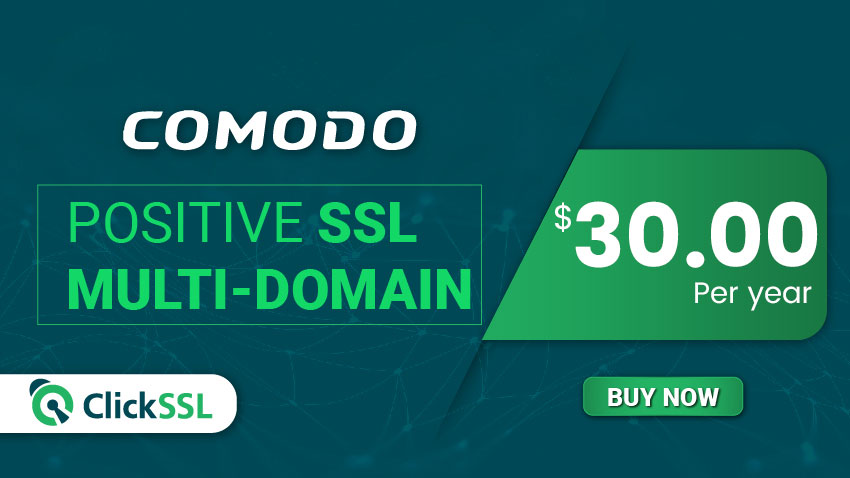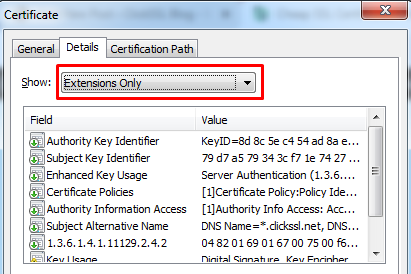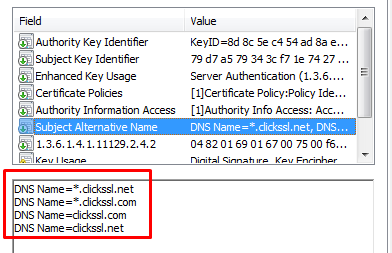SAN SSL certificate is type of SSL certificate that secures up to 100 domains during the certificate lifespan. You do not need to purchase an individual certificate for multiple domains. One certificate is enough.
E-commerce deals with multi domains security due to cost-saving factors and single security for all domains and subdomains. A SAN SSL certificate is capable of securing different levels of domains and subdomains by providing strong 256-bit encryption. In this article, we will discuss SAN (Subject Alternate Name) SSL certificate and how it is beneficial to the business world.
Whether it be a first-level domain or subdomain or multi-level domain, SAN or multi domain SSL certificate can secure all with strong encryption. SAN SSL certificate removes unwanted hassle in managing individual SSL certificates as a single SSL certificate can cover all domains. The certificate allows a smooth experience for users for website browsing. Multi domain SSL is useful where different domains are spread across different servers and a website owner wants to expand the business by adding more domains/subdomains.
What is a SAN SSL Certificate?
The SAN SSL certificate allows you to ensure the security of domain names and subdomains, local hostnames, and IP addresses by adding to the SAN field at the enrollment time.
The installation process and the management of the certificates are more manageable too. It is easier to secure ActiveSync, IMAP4, POP3, Unified Messaging, Outlook Anywhere, etc.
Are you aware that all servers may not allow multiple certificates to be installed? The SAN SSL certificate can secure the external and internal domain names using the 128-256 bit encryption mechanism. They are also called Unified Communications Certificates as they were initially designed for Microsoft’s Exchange and Communications servers.
What can be done with SAN SSL Certificate?
If you plan to host multiple SSL-enabled websites on a single server, it could require several unique IP addresses for every site. Again, with a Wildcard certificate, you will only be able to protect the first-level sub-domains along with the primary domain. The certificate with Subject Alternative Names can be of help and suit this use case effectively. Using this certificate, the administrator does not have the hassles of configuring several IP addresses on the server while connecting each to a different certificate.
How Does the SAN SSL Certificate Work?
We have seen that SSL certificates help to secure your web assets, and the type of SSL certificate you choose will depend on the types of web assets you have. If you have to secure different top-level domains accessible on the internet, the SAN certificate can help. For example, if you must secure www.example.com, www.example.net, and www.example.co.uk, you can use this certificate.
It can also protect several underlying sub-domains, like knowledge.example.com, blog.example.com, etc. The SAN certificates can be used to protect Unified Communications servers also. They are used in environments where web administrators have to make changes to the domains covered under the certificate frequently.
The certificates can be used on multiple servers concurrently and can be used on unlimited IP addresses along with concurrent private keys. Usually, there can be unlimited entries, but it will depend on the different CAs. The domains covered under the certificate can be changed at any time without incurring any additional prices.
Why Do I Need a SAN SSL Certificate?
Many businesses operate in different geographies or various lines of business. They may prefer to have other domain names for these operations. They may also have a centralized environment for all these web assets. It is best suggested that they use a SAN certificate to create an encrypted communication channel between the server and the visitor’s browser.
The CAs assess various aspects of the businesses based on the type of validation chosen by the company. The validation process ensures that the business is genuine, and visitors can interact with the website they are visiting without any fear of their information being accessed by hackers.
The Multi-Domain SSL Certificate – Is it Different?
A Multi-Domain SSL certificate can cover several fully qualified domain names (FQDN), and the certificates also include SAN fields. You can specify the hostnames that you wish to secure. Through the multi-domain SSL, you can secure any number of SANs and multiple FQDNs too. If you do not want the audience to know that all the domains are clubbed together, you may choose different certificates.
How to Check SAN SSL Certificate?
Now, how can you find an example of the Subject Alternate Name? You have to click on the padlock and examine the SSL certificate. Click on the Details tab, and you scroll down to find the field. When you click on this field, it will show all the SANs covered by the certificate.
SAN SSL Certificate Price Comparison
| Certificate Name | Price | Purchase |
|---|---|---|
| Comodo EV Multi Domain SSL | $115.00/yr. | Buy Now |
| Comodo Positive Multi-Domain Wildcard SSL | $90.00/yr. | Buy Now |
| Comodo PositiveSSL Multi-Domain | $30.00/yr. | Buy Now |
| GeoTrust Multi-Domain EV SSL | $347.13/yr. | Buy Now |
| GeoTrust Multi-Domain SSL (UCC) | $251.43/yr. | Buy Now |
Benefits of SAN SSL Certificates
#1: Single Security
Making all domains and subdomains secure is possible with SAN/multi domain SSL certificate. Single security is enough as it saves your hard-earned money and time to manage multiple certificates on different servers. It saves the website from being misused and offers robust protection to all included hostnames, sub domains. If you have different SSL certs for each domain then, it is hard to manage all SSL certificates. If a single SSL is expired without your knowledge then, a malicious hacker can take advantage of an insecure domain. To avoid this situation, a SAN SSL certificate was developed, which seems a cost-effective solution.
#2: Unlimited Server Licenses
There is no need to worry about multiple installations as multi domain SSL certificates can be installed on a number of servers without a single extra cost. Unlimited server license features can be useful where different domains are spread across various servers. All servers like primary, secondary, and backup servers can be secured with this certificate. SAN SSL is also useful in managing a load-balancing environment.
#3: Save Time and Money
SAN SSL saves money by offering a single security solution for domain names. A single certificate can be a costly deal assigned for each domain. By increasing efficiency in certificate management, a certificate manager does not need to remember different renewal dates, but a single renewal is sufficient for all domains/subdomains. However, it may seem a bit high in price initially but as you start to add domains, it becomes a cheap security solution.
#4: Robust Protection
All domains and subdomains will have robust protection with 256-bit encryption and 2048-bit CSR encryption. Each byte will have strong security traveling between the server and the user. Cyber thieves cannot recognize ongoing information between two ends. Hence, the details remain intact and allow users to share their information without being intercepted.
#5: Highest Compatibility
SAN SSL certificate is compatible with servers and browsers. Whether you surf a website on a desktop or mobile, a user can access the website without facing any SSL-related warning. Browser vendors like Microsoft, Firefox, Chrome have their root certificate installed in major browsers. At the time of communication, the SSL certificate issued by the certificate authority communicates with a preinstalled root certificate and creates compatibility.
#6: Protection for Different TLDs
Multi domain SSL certificate allows for securing different TLDs like .edu, .com, .net. It allows for covering the more relevant domains of different industries. However, if you purchase an individual certificate for each domain then, it would be a costly deal. SAN SSL here secures all types of TLDs under a single certificate hence, there is no need to pay an extra penny.
#7: Different Validations
SAN SSL or multi domain SSL certificate comes in domain validation (DV), business validation (OV) and extended validation (EV). A site holder can opt for any type of validation associated with a selected branded SSL certificate. Domain validation is fast and easy validation types compare to the organization and extended validation type. The price depends upon the brand you choose or the validation type. OV SSL and EV SSL check business existence by checking documents and third-party records for confirmation.
Conclusion for SAN SSL Certificate
Companies must not lower their guard against hackers, and one of the best ways to do this is by installing an SSL certificate. However, the management of certificates becomes cumbersome if there are several SANs to secure. A single certificate will ensure lower resources are utilized and can provide adequate security too.
Recommended Reading:




